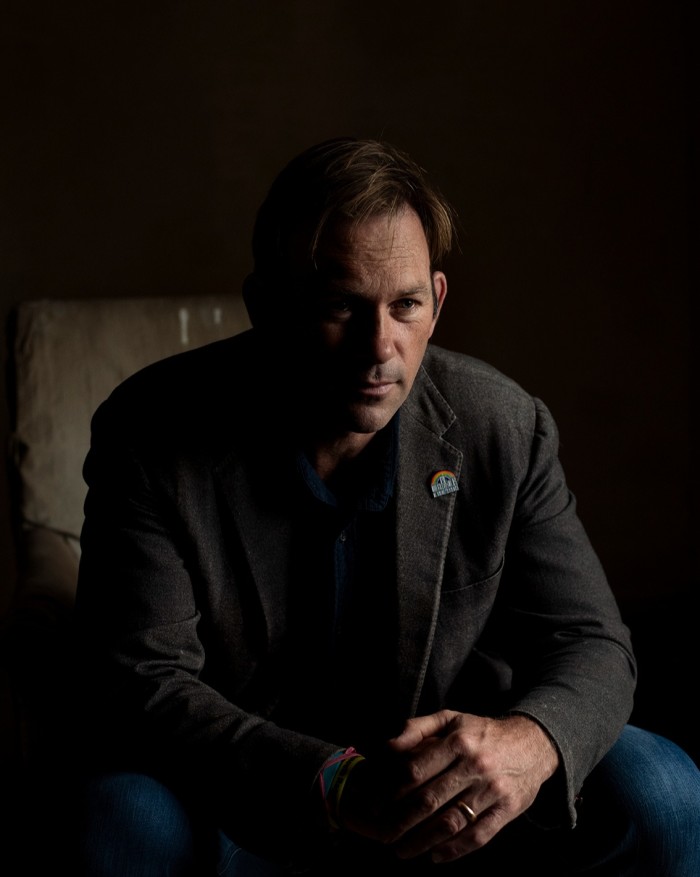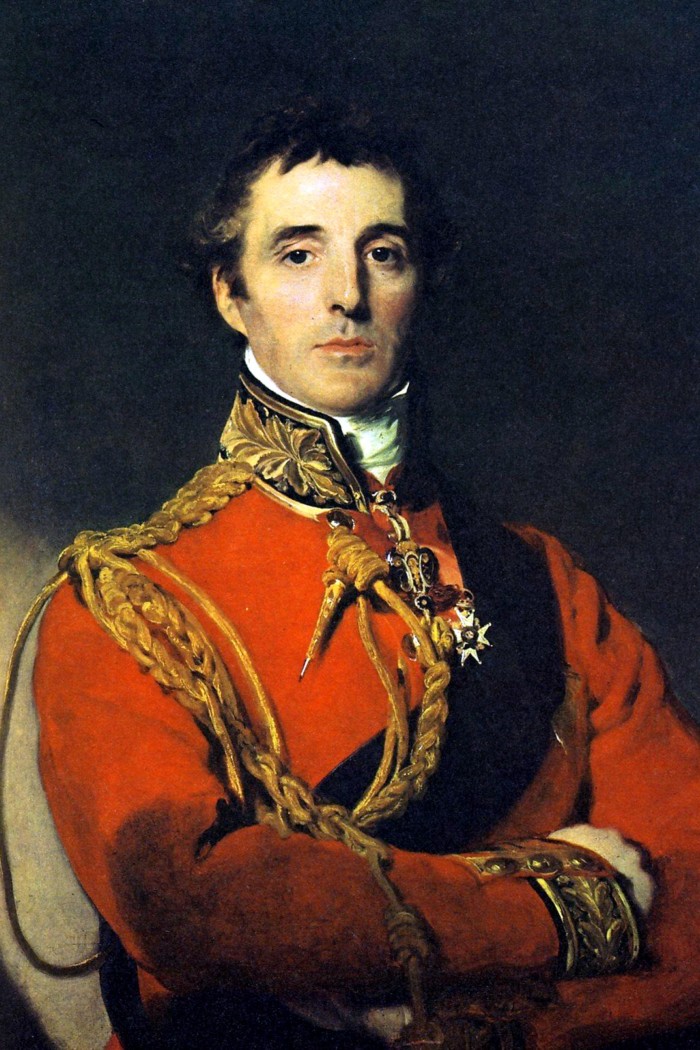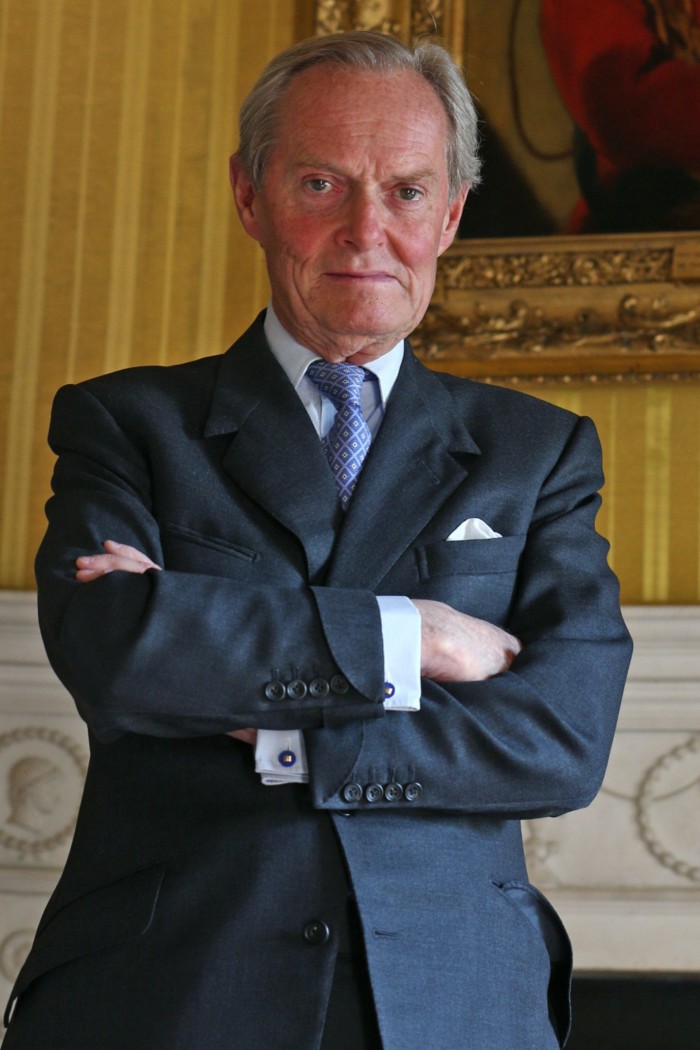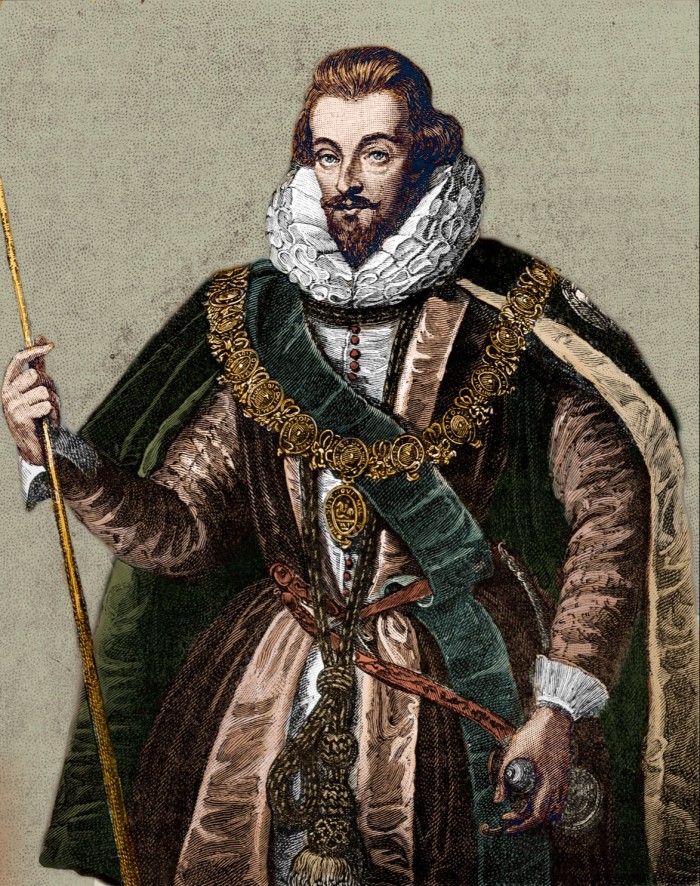Arcane, hereditary, all-male — and at the heart of British democracy

Roula Khalaf, Editor of the FT, selects her favourite stories in this weekly newsletter.
The Earl of Devon prides himself on the “delicious” cream teas served at Powderham Castle, the imposing fortress inhabited by his family since 1390. This culinary treat was, he noted in his maiden speech in the House of Lords, first served by a predecessor named Ordwulf, Saxon Ealdorman of Devon, who “ordered bread, cream and jam for workers rebuilding Tavistock Abbey after the Viking raids of 997AD”.
The six-foot-five Earl — Charles Peregrine Courtenay — calls the business he runs at Powderham — a castle open to the public, with a farm, shop and café attached — “a family-owned SME that’s 700 years old”. But it’s far from your average small business. The crenellated towers look down over a park of grazing fallow deer, with the ground falling away to the Exe estuary beyond.
The family has everything you could want from the English aristocracy. The Courtenays arrived with Eleanor of Aquitaine in 1154 and one forebear, Richard Courtenay, was buried with Henry V in Westminster Abbey, after dying of dysentery in Henry’s tent at the Siege of Harfleur. “A very close male relationship,” is how Courtenay, who sports a rainbow badge on his country jacket, describes it.
There are, he tells me, a “good few gay stories” in the family history. Meanwhile, it turned out that Timothy the family tortoise, who died in 2004 at the age of 160, was “actually a female”. The Earl says this “transgender issue” was only identified when Timmy had to go to the vet, but the ancient creature kept its name until its dying day.
Things have not always been easy. “We were beheaded several times,” Courtenay notes of some of his more unfortunate ancestors. And the current Earl admits that when he married AJ Langer, an actor with roles on Baywatch and My So-Called Life whom he met in a Las Vegas bar, his family did not regard the match as “their obvious choice”.

Earnest, Eton-educated and radiating a floppy-haired rural sense of wellbeing, the 46-year-old 19th Earl of Devon looks like he was born to rule. And, thanks to one of the weirdest quirks in Britain’s eccentric system of government, in a sense Charlie Courtenay still does.
This is because even though it’s been more than 20 years since Tony Blair’s Labour government defenestrated most of the 750 aristocrats who sat in the House of Lords, the upper chamber of Britain’s legislature, a murky backroom deal ensured that 92 places were reserved on a “temporary basis” for a rump of hereditary peers.
Needless to say, today they are still there, just as they have been for centuries. And so, thanks to the circumstances of his birth, the Earl of Devon is able to attend debates in the Lords, a revising chamber and frequent thorn in the side of the elected House of Commons, and to vote on the laws of the land.
The House of Lords forms one part of the ancient triumvirate of the British constitution, along with the monarchy and the House of Commons. Its inhabitants include dukes, earls, viscounts, barons and other exotica from the aristocracy. Before former prime minister Blair’s attempt to modernise the place in 1999, most seats in the legislature were passed down the line from generation to generation, almost exclusively to a male heir.
The House of Lords Act of 1999 ended the 700-year-old right of all peers to sit and vote on the red benches. With most hereditary peers ejected, today’s Lords is mainly an appointed chamber, with political leaders taking their pick of former MPs, lawyers, doctors, actors, athletes and so on to sit as “life peers” on the red benches. Their titles cannot be inherited.

The filling of the upper house with political cronies is a frequent source of controversy and is back in the news as Boris Johnson battles “sleaze” allegations. On Saturday, The Sunday Times reported that the Conservative party systematically offered seats in the House of Lords to a select group of multi-millionaire donors, who paid more than £3m to the party. The Tories said they were entrepreneurs and philanthropists.
The Lords today is — at almost 800 members — one of the world’s most bloated legislative assemblies. Only China’s National People’s Congress is bigger. The fact that no one in it is directly elected is still regarded by many as a democratic outrage. The continued presence of peers who sit in a legislative assembly merely by birthright is seen as even more egregious. It doesn’t help that all of the 92 hereditary peers that remain are white and male. According to research by The Sunday Times, nearly half went to one school: Eton College. Because most aristocratic titles pass to the firstborn son or the closest male relative, this blue-blooded band is unlikely to become more diverse.
Under the terms of that “temporary” deal agreed by Blair, the number of hereditaries is fixed: when one of the 92 dies or retires, an extraordinary by-election procedure takes place, where another peer on a reserve list of more than 200 hereditaries — House of Lords wannabes — is chosen to take their place. The electors are made up of hereditary peers already in the upper chamber, usually members of the party group where the vacancy arose. The result is one of the weirdest “democratic” contests in the world. And it is through that process that, in 2018, the Earl of Devon assumed his seat in the Lords.
There have been about 40 by-elections held among hereditary peers since 2002, when the first such contests took place. Manifestos are nugatory or downright bizarre — in 2015 the Earl of Limerick’s ended with the words “from your seats so well entrenched, please vote that mine may be embenched”. He was beaten by the ninth Duke of Wellington, whose forebear won the Battle of Waterloo, and who has recently been fighting a 21st-century legislative battle to stop water companies dumping sewage into rivers.


In a Tory by-election contest this year, Viscount Mountgarret offered “no statement” in support of his candidacy, while Lord Ashcombe’s credentials included the fact that he “races on the Solent and gardens enthusiastically”. Earl De La Warr is the “proprietor of the village pub”. Lord Milverton, running to join the unaligned crossbench peers, offered an eight-word prospectus promising to be “as objective and reasonable as possible”.
Each candidate makes a pitch for support, usually to peers from the party group that they aspire to join. Hustings, if they take place at all, are polite affairs, with candidates invited to make a four-minute “elevator pitch” and then take a few questions. Campaigning is largely frowned upon. As Courtenay recalls: “Some people try to lobby and try to get in touch with others. But I got the understanding that wasn’t really appropriate.” The Earl of Devon was among 19 candidates for a seat in the non-party political group of crossbench peers. There were 31 electors and Courtenay won a run-off with a whopping seven votes.
Sometimes the people standing in an election outnumber those allowed to vote in it. The Lib Dems, for example, have just three hereditary peers entitled to vote to appoint a replacement Lib Dem peer; when a seat became vacant recently seven peers stood for election. Once elected, a peer can sit in the House of Lords for decades until they retire or die.
For one particular peer, the by-election system for hereditary peers is “beyond satire”. Lord Bruce Grocott, a former parliamentary aide to Blair, has waged a personal campaign for years to legislate to stop it. His next attempt, almost certainly futile, will come when he brings forward his own private member’s bill in early December.
“I can’t believe anyone can think having 92 places without a single woman or any member of an ethnic minority is acceptable,” the former college lecturer says. “It’s worse than that — there isn’t any possibility of having one either.”
Indeed, leaving aside connections to the Norman and Plantagenet baronies, the British aristocracy is not known for its ethnic diversity. And of the 204 hereditary peers registered to stand in by-elections when a place becomes vacant, there is only one woman. Sadly, Grocott notes, “She doesn’t seem to want to stand.”
Before this, the only woman among the remaining hereditaries was the formidable 31st Countess of Mar, who retired last year, age 79. The holder of the oldest peerage title in the UK, and a renowned maker of goats’ cheese, Mar declared she did not want to be one of those people who “staggers around with a Zimmer frame and needs people to tell them where they are going”.
Grocott, a life peer who has just turned 81, has made three previous attempts to end the by-election system in a bid to ensure that hereditary peers would eventually, by dying, or retiring as Mar did, disappear from the upper house. But on each occasion, he has been thwarted, as opponents strangle the legislation with filibusters or parliamentary procedure. “I’m the world’s leading expert on this,” Grocott says ruefully. “It’s not an easily transferable skill.”
He adds: “For reasons that are unfathomable, the government won’t support the bill.” And, without Boris Johnson’s support, it stands no chance of getting through parliament and the hereditaries will continue to sit in the House of Lords.
The Conservative peer Lord David Trefgarne, 80, has previously proposed “wrecking” amendments to scupper Grocott’s legislation and, asked whether he would oppose it again next month, he says: “I’m afraid I will.” Like many hereditary peers, Trefgarne says that — of course — he would favour a largely elected second chamber, but in the meantime, it was wrong to have the place stuffed with peers appointed by the prime minister.
Trefgarne likes to take a long view in these matters. “Cast your mind back to 1215,” he says wistfully, recalling it was the hereditary peers and bishops who forced King John to make his Magna Carta concessions at Runnymede. “Don’t tell me we know nothing about democracy,” he exclaims. “We invented it!”
While many hereditary peers insist they are only sitting in the House of Lords until a properly reformed upper chamber comes along, the Earl of Devon believes the aristocracy should have a role in the second chamber, partly because of the continuity with Britain’s past that they represent. “We first took a seat in, I think 1280-something, and have been doing so ever since,” he says of his own family history. “There is a great global cacophony of different political systems — so that continuity is of itself of great value. We don’t tip things over and start afresh very often. There’s value to that and the stories that gives.”
Courtenay, who practised law in California and specialises in intellectual property and technology litigation, says he has something to offer to the upper house. He also says he wants to be a “champion” of Devon, the county over whose green hills Powderham Castle presides. And, with his 3,500-acre estate and up to 20 full-time employees, the Earl probably makes a bigger contribution to the local economy than his ancestor Isabella, Countess of Devon, who built a weir across the River Exe in the 13th century to stop ships travelling to Exeter, thus ensuring they had to dock at the family’s own port at Topsham.
Courtenay, who says women have been a driving force in his family’s history, is campaigning for a change in the law to allow hereditary peerages to pass to the eldest daughter, rather than son. “I think the sex discrimination aspect is unforgivable,” he says. But changing the law of primogeniture will never satisfy those, such as Grocott, who believe that hereditary peers have no place in a 21st-century legislature.
The survival of 92 hereditary peers as lawmakers in 21st-century Britain is a testament to the durability of the aristocracy and an apparently innate sense of how to bend the will of the state to their own advantage.
When he won a landslide election victory in 1997, Blair’s intention was clear enough. Labour’s manifesto said the “right of hereditary peers to sit and vote in the House of Lords will be ended by statute”. The fact that some are still there almost 25 years later is a particular tribute to one man: Robert Michael James Gascoyne-Cecil, seventh Marquess of Salisbury.
The Cecils have excelled at high-level politics for more than 400 years, since the days of Elizabeth I. The third Marquess of Salisbury served as prime minister three times during the 19th century. In the late 1990s the current Salisbury — who was leader of the Conservative peers at the time — set about negotiating a deal with Blair that would see some hereditaries keep their seats pending a second-stage reform creating a fully reformed house — a second stage, which to nobody’s great surprise, never arrived. “The arrangement was supposed to last six months,” he chuckles now.
Salisbury’s negotiations to keep the aristocracy in the upper house made him a figure of interest in republican France at the time. “I had a letter from a Marxist professor at the Sorbonne, who noted ‘Il n’y a que le provisoire qui dure,’” he recalls. How exactly Salisbury achieved his objective is a story, he says, he has not recounted for a while.


Back in 1998 he warned Blair that unless some hereditaries were retained, there would be legislative carnage in the upper house, with the aristocrats delaying and filibustering the prime minister’s more urgent legislative priorities. “My whole tactic was to make their flesh creep,” recalls the 75-year-old peer and former merchant banker. “I threatened them with the Somme and Passchendaele. I didn’t mean it — it would have been a constitutional outrage! But I said it.”
Blair was spooked and ordered Lord Derry Irvine, Labour leader in the Lords, to broker a compromise with Salisbury. “Derry offered us 15 hereditary peers. I thought I might as well be ambitious, so I said, ‘How about 100?’ He said that was ridiculous.” But in the end Irvine bowed to the blue-blooded backlash.
Salisbury recalls: “I thought we might need some kind of rationale for this. So I said that 75 would be about 10 per cent of the existing hereditaries, then we’d need a few more — perhaps 15 — with experience of running committees, that sort of thing, to help with the transition. It was frightful bullshit really.”
The deal to retain 90 hereditaries — plus two other peers who conducted royal functions — came together in Blair’s Downing Street flat. Aristocrats already entitled to sit in the Lords would hold an election among themselves to choose who could remain — a quirk that hereditary peers like to joke makes them more “democratic” than their appointed colleagues.
The secret pact was sealed by Salisbury, Irvine and the Labour prime minister behind the back of William Hague, the Tory leader at the time. “Big mistake,” Salisbury recalls. “To say he was upset would be something of an understatement.” Salisbury was sacked, acknowledging at the time that he had “rushed in like an ill-trained spaniel”, but the deal stuck.
The Tory chief whip in the Lords at the time, Lord Tom Strathclyde, said Irvine insisted that by-elections would never happen because he was busy preparing his stage-two reforms for a more democratic upper chamber. Strathclyde, or to give him his full name Thomas Galloway Dunlop du Roy de Blicquy Galbraith, recalls: “I said: ‘Just in case.’ And had another drink.”
Speaking from his Scottish home, where he is “chopping logs, watching the grass grow”, Strathclyde says: “I’m not arguing for the continuation of the system; of course, if an elected house were to come along, we would lay down our burden.” A jovial figure with a perma-twinkle in his eye, he claims — like Salisbury — that the by-election system is so anachronistic that it will serve as “sand in the shoe” and force politicians to fully reform the House of Lords.
But Labour cynics believe that is self-serving tosh. Lord Charlie Falconer, a Labour peer, says: “He’s just saying that. He knows very well the Commons would never accept an elected Lords because it would undermine the primacy of the Commons. It was a means, as he saw it, to ensure the hereditaries were there for ever.”
Attempts to reform this very British version of “democracy” have been going on for more than 100 years, from the Liberal government’s move to clip the wings of the upper house in the 1911 Parliament Act, through to attempts in 2012 by Nick Clegg, leader of the Liberal Democrats, to move to a largely elected second chamber as part of David Cameron’s Con-Lib coalition.
Yet descendants of Norman conquerors, philandering kings and royal suck-ups continue to sit on the red benches. On each occasion, potential House of Lords reform becomes bogged down in parliamentary wrangling and gridlock. Ultimately prime ministers abandon the fight and return to the business of dealing with other, more pressing matters.
Lady Olly Grender, a Lib Dem life peer and a former Clegg adviser, was looking on in 2012 as the last big attempt to reform the upper chamber drowned in a parliamentary quagmire. Cameron did not exactly help, she claims: “He didn’t give a damn about it.” Indeed, Cameron once joked that House of Lords reform was “a third-term priority”. Grender says: “The fact there isn’t a single female hereditary peer is an affront to a modern democracy.” But almost 10 years on, there still seems little appetite in government to tackle the issue.
Jacob Rees-Mogg, leader of the House of Commons in the current Conservative government, admits the idea of hereditary peers electing their own replacements is “wonderfully arcane” and that it is “rather splendid” that the by-elections are about the most democratic element in the upper house. But Rees-Mogg argues that the more ludicrous the House of Lords appears, the less likely it is to throw its weight around.
“How do you reform the House of Lords without taking power from the Commons?” he asks. He fears that if the Lords acquired more democratic legitimacy it would challenge the elected MPs in the Commons, risking “US-style gridlock”. Instead of which, the patently undemocratic House of Lords will continue its low-profile job as a revising chamber, scrutinising and tweaking draft laws, with MPs retaining the upper hand. There is no sign of Johnson’s government reforming the Lords any time soon.
A beneficiary of Salisbury’s sinuous dealmaking is one of the most recent Labour hereditary peers to take his seat in a by-election: Viscount Stansgate, otherwise known as Stephen Benn, son of the Labour leftwing hero Tony Benn, who six decades earlier renounced his hereditary title in order to continue to sit in the House of Commons.
Tony Benn called the hereditary peerage system “absolutely mad”, once saying that allowing someone to make laws because their father had was a curious concept in a modern democracy. “I wouldn’t like to go to a dentist who, just before he drilled my teeth, told me he was not a dentist himself, but that his father had been a very good dentist.”
In his maiden speech last month the latest Viscount Stansgate, who will be able to claim up to £323 in daily allowances for attending sittings in the Lords, declined to mention his father’s famous thoughts on the hereditary peerage. He was said by a Labour spokesman to be “getting his feet under the desk” and was unable to comment for this article.
Falconer says: “He’s a decent policymaker. But this is history stood on its head.” Why does he think people like Stansgate want to take up a seat in the Lords? “It’s not the allowance,” he says. “They want to be in parliament.”
For many, the situation has already gone on too long. Labour’s leader in the Lords, Lady Angela Smith, said peers were “hugely embarrassed” about hereditary peerages and the by-elections that sustain the aristocratic element of the upper chamber. “The ball remains in the government’s court but they refuse to act, even though ministers know it would have our support,” she says.
But Boris Johnson, like most prime ministers, has other priorities. So the curious case of the hereditary peers and their bizarre by-elections continues into the 21st century with no end in sight. And democracy campaigners continue to rage impotently against the system.
The 19th Earl of Devon concedes the situation could last for some time yet. “It’s too difficult a nut to crack,” he says. “It’s, well, if you get rid of that, you’ve got to do something else. And no one wants to decide what that should be.
“I think at present the hereditary presence in the House is consistent, it’s valuable.” He says other aspects of society work on the hereditary principle — families pass on assets — so why not the right to sit in a legislative chamber?
Is he driven by a sense of noblesse oblige? “I don’t know if I’d put it in those terms,” he says. “There’s a sense that there’s a job to be done. I think it’s an opportunity rather than an obligation — an opportunity to give something back and to provide some service.”
Courtenay remembers fondly listening to his father give his own maiden speech in the Lords — he was allowed to sit on the steps of the throne — in the late 1990s. The words have stuck with him to this day. “He gave a good speech,” he recalls. “It was, like, ‘I was never interested in being here, but I’m here because we’ve been here forever. It’s part of the job.’”
George Parker is the FT’s political editor
Follow @FTMag on Twitter to find out about our latest stories first.
Letters in response to this article:
Does ‘noblesse oblige’ have any role in British politics? / From Steve Essrig, New York, NY, US
Comments